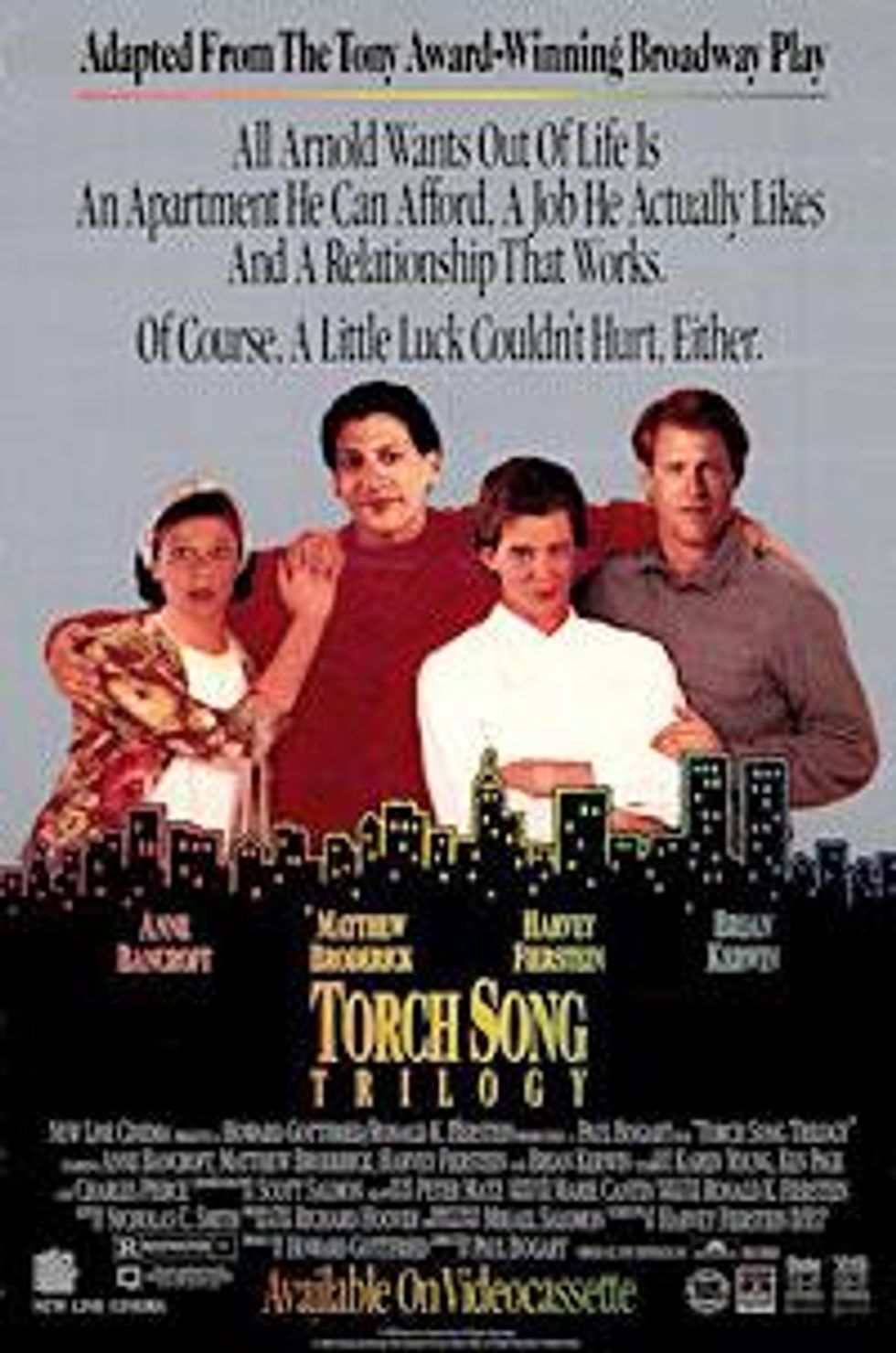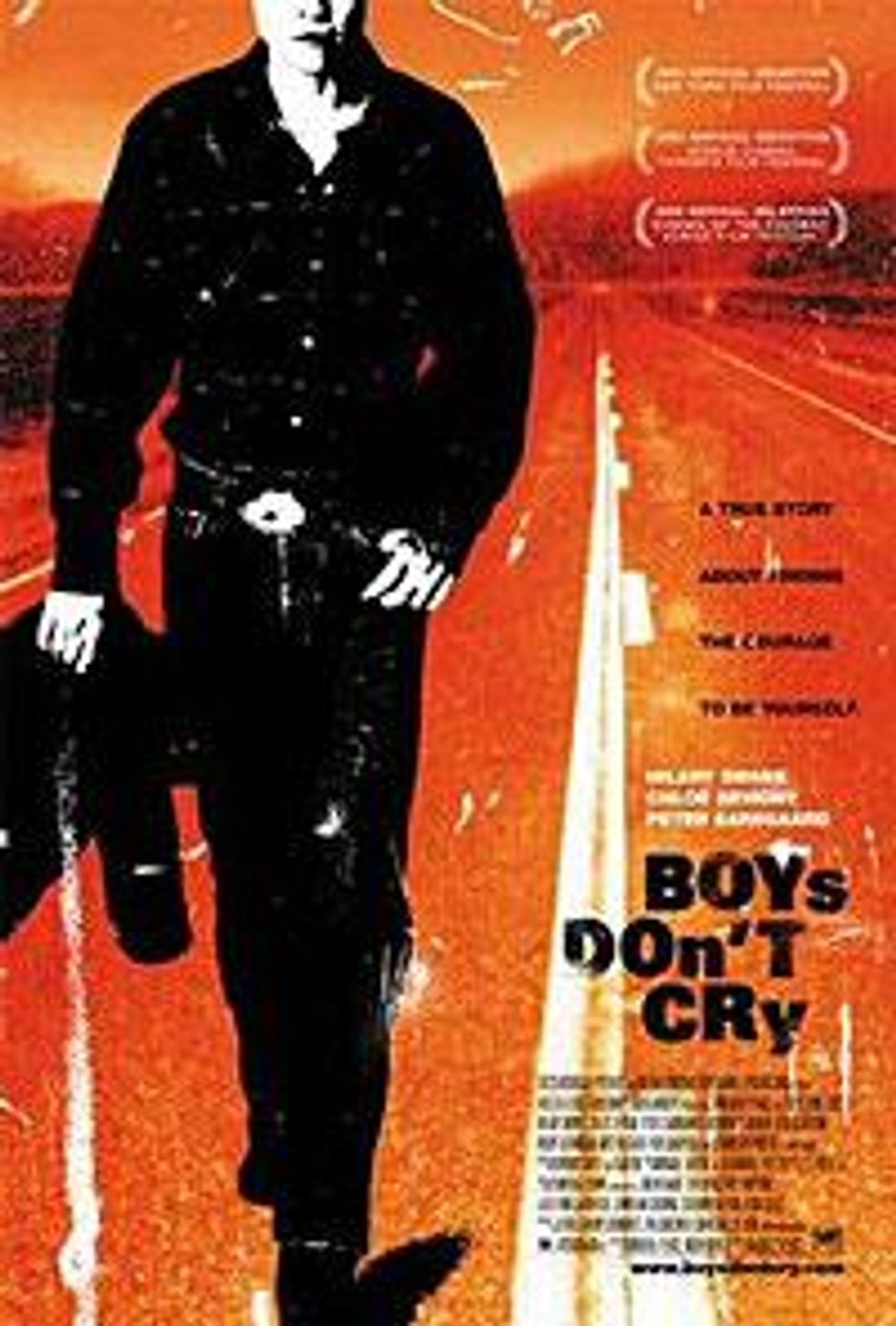After compiling a list of the most essential LGBT movies, The Advocate is pitting the top 32 entries against one another in a series of one-on-one face-offs. In this Sweet 16 round, the game-changing film Boys Don't Cry, which made a star of Hilary Swank for her performance as a trans young man, is up against Torch Song Trilogy, the story of a Jewish drag queen adapted from the play by Harvey Feinstein. Which film is more essential? Vote below, and check out our full list of the top 175 most essential LGBT movies at Advocate.com/top175.
 Torch Song Trilogy, 1988 (25 seed)
Torch Song Trilogy, 1988 (25 seed)
This superlative early gay film was adapted from the three-part play of the same name by Harvey Feinstein, and centers around his character, Arnold, a shamelessly swishy Jewish drag performer who navigates New York's gay scene, finds love (with Matthew Broderick, at the height of his youthful fame), fights with his mom (Anne Bancroft), and adopts a teen. It's both hilarious and tragic; some moments are at once sad and sentimental and funny. --Diane Anderson-Minshall
 Boys Don't Cry, 1999 (9 seed)
Boys Don't Cry, 1999 (9 seed)
It's easy to dismiss this as an "important" film, but Boys Don't Cry, based on the true story of the murder of Brandon Teena, a young trans man killed in Nebraska, is actually an incredibly good one as well. For a film that ends in such an atrocity, it has a breezy romanticism as we meet the flirty Brandon (played by Hilary Swank, in a role that won her an Oscar and made her career) and weary Lana, the girl he falls in love with. Brandon knows little of other trans people, of hormones or gender identity or even the kind of (sadly still limited, but at least talked about) rights trans people have today. But he's young and in love and troubled, because of having no social safety net, living in an impoverished community, and hiding his birth-gender assignment (and in the film, the lack of medical hormones is the linchpin that eventually leads to his death). Watch it with a big box of Kleenex and a sense of injustice. --Diane Anderson-Minshall
Vote here on Facebook or Twitter by Sunday, July 12, and check in every day for more Clash of The Classics.

 Torch Song Trilogy, 1988 (25 seed)
Torch Song Trilogy, 1988 (25 seed) Boys Don't Cry, 1999 (9 seed)
Boys Don't Cry, 1999 (9 seed)

































































Charlie Kirk DID say stoning gay people was the 'perfect law' — and these other heinous quotes